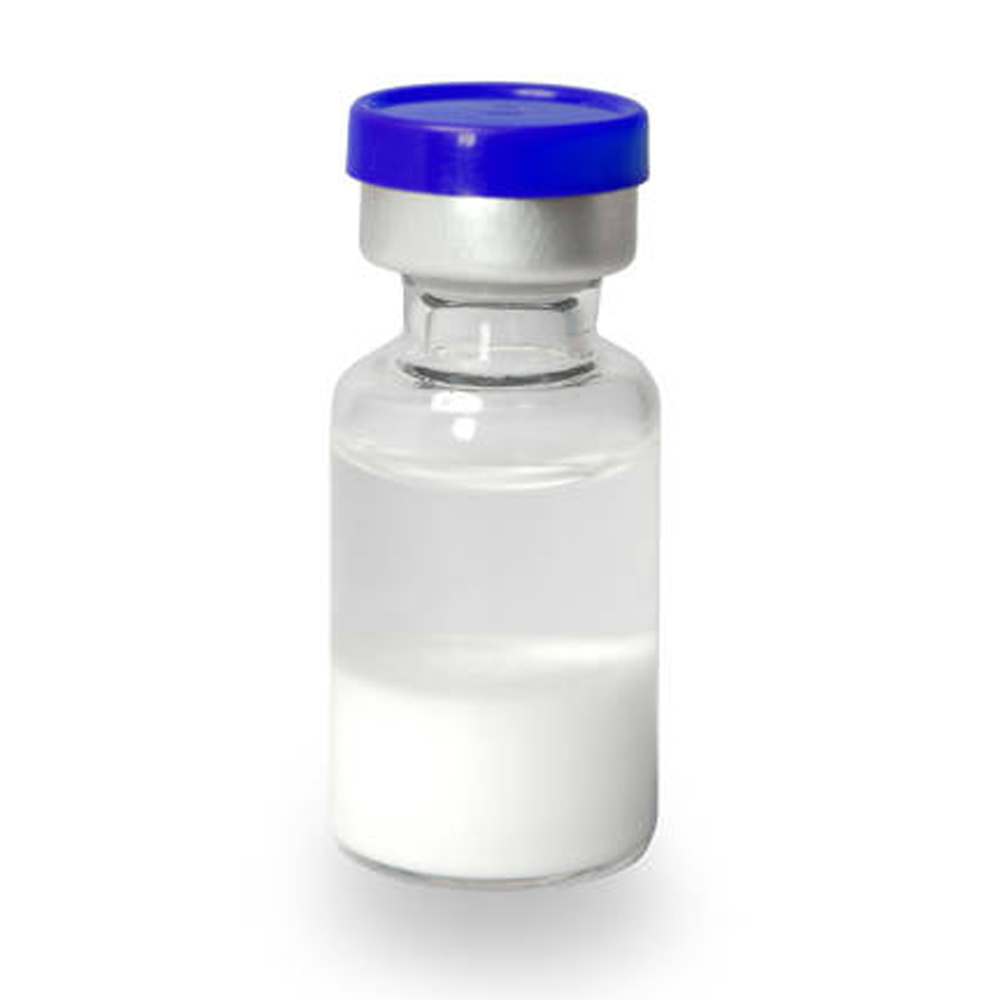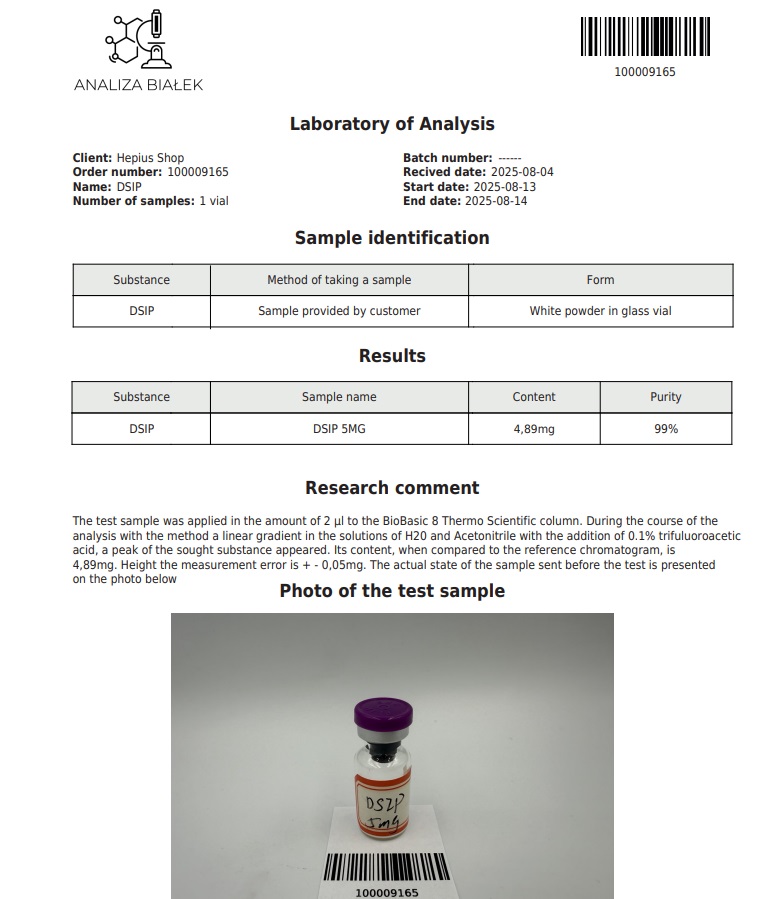Description
DSIP stands for Delta Sleep-Inducing Peptide. It is a neuropeptide that was initially discovered for its ability to induce deep sleep and improve sleep quality. DSIP is a naturally occurring peptide in the human body and has been studied for its potential effects on sleep, stress regulation, and overall well-being.
What is DSIP (Delta Sleep-Inducing Peptide)?
- DSIP is a small peptide consisting of 9 amino acids and is primarily known for its ability to promote deep, restorative sleep.
- It was first isolated in 1970 and found to have a unique role in sleep regulation, particularly in inducing non-rapid eye movement (NREM) sleep, which is the stage of sleep most associated with restoration and recovery.
Mechanism of Action:
- Sleep Induction:
- DSIP is believed to promote deep sleep by interacting with specific receptors in the brain, particularly those that regulate the sleep-wake cycle. It encourages a state of deep, slow-wave sleep that is crucial for physical and mental recovery.
- By facilitating deeper stages of sleep, DSIP may help improve the quality of sleep, allowing the body to rest and recover more effectively.
- Stress and Hormonal Regulation:
- DSIP has been shown to have effects on stress hormones, such as cortisol, helping to regulate the body’s stress response. This regulation may contribute to its calming effects and its ability to improve sleep quality.
- It is thought to play a role in reducing anxiety and promoting a state of relaxation.
- GABAergic and Endorphin Activity:
- Some studies suggest that DSIP may influence the GABAergic system, which is involved in calming neuronal activity. Additionally, DSIP may also have a role in endorphin release, contributing to the feeling of relaxation and well-being.
Applications of DSIP:
- Sleep Disorders:
- DSIP has primarily been researched for its ability to improve sleep quality. It may be useful for individuals with insomnia or other sleep disorders, particularly those related to non-restorative sleep or disruptions in deep sleep stages.
- It is sometimes explored as a potential treatment for sleep deprivation in individuals who suffer from poor sleep quality or jet lag.
- Stress Management and Relaxation:
- DSIP‘s ability to regulate stress hormones (like cortisol) and induce a relaxed state makes it a potential stress-reduction tool. It may help reduce anxiety and improve mental calmness before sleep, making it of interest for individuals with high levels of stress or chronic anxiety.
- Athletic Performance and Recovery:
- In athletes, DSIP is sometimes used as a recovery aid. Improved deep sleep can significantly enhance muscle repair, growth hormone secretion, and overall recovery after intense physical activity.
- Since deep sleep is associated with restorative processes, DSIP might help optimize muscle regeneration and physical recovery, especially when sleep quality is lacking.
- Anti-Aging and Longevity:
- As sleep quality declines with age, DSIP’s potential to improve deep sleep could make it an interesting area of research in the field of anti-aging and longevity. Better sleep is directly linked to improved immune function, cognitive health, and physical well-being, which are all important aspects of healthy aging.
Administration of DSIP:
- DSIP is typically administered via subcutaneous injection or intranasal (nasal spray) for research purposes. However, it is not widely available as an over-the-counter treatment or supplement and is primarily used in clinical trials or research settings.
- Dosing protocols can vary, but a typical dose used in research is around 0.5 to 1 mg per day, usually before bedtime to facilitate sleep.
Side Effects of DSIP:
While DSIP is generally considered to be well-tolerated, there are some potential side effects:
- Drowsiness or grogginess the following morning if sleep is prolonged.
- Headaches or nausea in some individuals.
- Injection site reactions (redness or swelling) if administered subcutaneously.
Legality and Availability:
- DSIP is a research chemical, and its use is not FDA-approved for general medical use. It is available mainly in research settings and is sometimes sold by vendors who specialize in peptides for scientific purposes.
- Because it has not been fully studied or regulated for human use, its use outside of clinical trials or research should be approached with caution.
Conclusion:
DSIP (Delta Sleep-Inducing Peptide) is a peptide that promotes deep, restorative sleep by interacting with the brain’s sleep regulation mechanisms. It has potential applications in treating sleep disorders, managing stress, and improving athletic recovery by enhancing the quality of sleep. However, it remains a research chemical and has not been approved for widespread medical use. As with any peptide or experimental compound, it is essential to consult a healthcare provider before considering its use.











Reviews
There are no reviews yet.